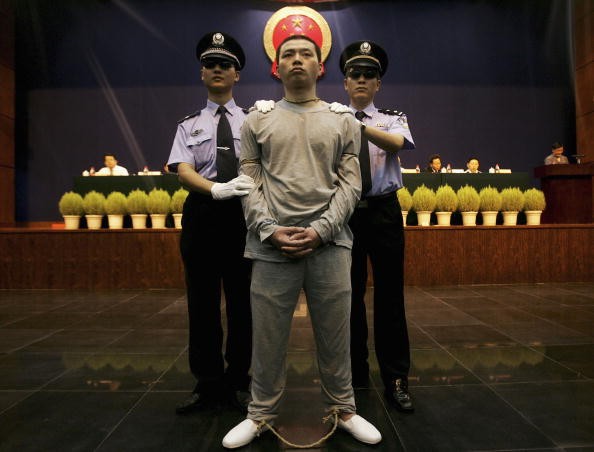China's Supreme People's Court has recently amended the Rules of Court in order to protect the rights of all parties involved in cases, China Daily reported.
The new set of rules, which is effective starting May 1, allows suspects on trial to not wear prison uniforms, vests or any other clothes carrying logos of detention houses and prisons.
According to Hu Shihao, the director of the Supreme People's Court's reform office, the said changes are part of the government's intensified efforts to reform and improve the country's judicial system.
"The new set of regulations requires courts at all levels to strictly abide by the procedural law in trials and is expected to fully protect the rights of all people and entities involved in a trial," Hu said.
Hu clarified that suspects will now be permitted to wear civilian garments during trials, adding that they should not be subject to restraining devices such as handcuffs under normal circumstances.
Nonetheless, those who are involved in serious violent crimes are still required to wear such devices so as to prevent them from posing danger to the people in the courtroom, China Daily said.
For Wei Jie, a lawyer at the Beijing-based Jieqiang Law Firm, the amendment mirrors a great improvement in the government's effort to protect people's rights. He also noted that the recent revision has marked the end of a decades-long tradition of mandating suspects to wear prison uniforms.
The principle that one is considered innocent until proven guilty is one of the most vital rights in criminal justice systems. According to the Criminal Procedure Law, one must undergo a thorough trial for him to be proven guilty.
"The revision conforms to the provisions of the Criminal Procedure Law," Wei said.
"It has a great significance because it removes the prejudice against suspects who wear prison uniforms in court, which helps ensure justice," the lawyer added.
Meanwhile, the amendments also allow defense lawyers to bring their own laptops during trials. They now also have the entitlement to "enjoy equal status and treatment with prosecutors in court," the article said.
The new court rules further suggest the use of video equipment to let witnesses testify even outside courtrooms. The revisions also include the protection of the parties' personal information.




























